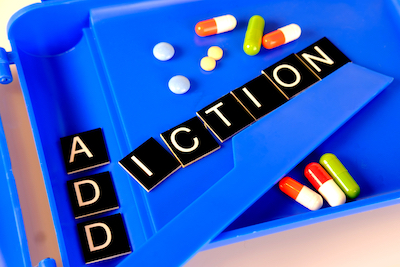Addiction can take a devastating toll on both the mind and body. It can leave individuals feeling trapped in a cycle of dependency and despair. However, the journey to recovery is not only possible but also transformative. It requires a holistic approach that addresses both the physical and psychological aspects of addiction. By focusing on healing the mind and body, individuals can reclaim their lives and embark on a path toward lasting sobriety. Here are some effective strategies for overcoming addiction and restoring balance to your life.
Seeking Professional Help

Seeking professional help is often the first step on the road to recovery. Trained therapists and counselors can provide invaluable support and guidance throughout the journey. Therapy sessions offer a safe space to explore the underlying causes of addiction, address unresolved trauma, and learn healthy coping mechanisms. Additionally, support groups such as Alcoholics Anonymous (AA) or Narcotics Anonymous (NA) can provide a sense of community and solidarity, reminding individuals that they are not alone in their struggles. In therapy, individuals can gain insight into their addictive behaviors, identify triggers, and develop personalized strategies for managing cravings and avoiding relapse. Therapists may utilize various evidence-based techniques such as cognitive-behavioral therapy (CBT), motivational interviewing, or dialectical behavior therapy (DBT) to help individuals build resilience and improve their overall well-being.
Embracing Holistic Therapies
Holistic therapies offer a complementary approach to traditional addiction treatment methods. Practices such as yoga, meditation, and acupuncture can help individuals reconnect with their bodies and reduce stress levels. These techniques promote relaxation, improve emotional well-being, and enhance overall resilience. Moreover, holistic therapies encourage mindfulness and self-awareness, empowering individuals to recognize triggers and make healthier choices in their daily lives. Incorporating holistic therapies into your daily routine can foster a sense of balance and harmony, promoting not only physical healing but also spiritual and emotional well-being. Engaging in mindfulness practices allows individuals to cultivate present-moment awareness, letting go of judgment and self-criticism. Over time, these practices can help individuals develop a deeper understanding of themselves and their relationship with substances, paving the way for lasting transformation.
Taking Medication to Aid Treatment
Medication-assisted treatment (MAT) can be a valuable tool in addiction recovery, particularly for individuals struggling with opioid or alcohol dependence. Medications such as methadone, buprenorphine, or naltrexone can help alleviate withdrawal symptoms, reduce cravings, and prevent relapse. However, it’s essential to work closely with a healthcare provider to determine the most appropriate medication and dosage for your individual needs. Additionally, medication should be combined with counseling and behavioral therapies for optimal results. While medication can provide significant relief from withdrawal symptoms and cravings, it’s important to recognize that it is not a standalone solution. MAT works best when integrated into a comprehensive treatment plan that addresses the underlying psychological and behavioral aspects of addiction. By combining medication with therapy, individuals can address the root causes of their addiction, learn coping strategies, and develop the skills needed to maintain sobriety in the long term.
Cultivating Healthy Habits
Cultivating healthy habits is crucial for maintaining sobriety and promoting overall well-being. Regular exercise not only improves physical health but also releases endorphins, which can uplift mood and reduce cravings. Eating a balanced diet rich in fruits, vegetables, and lean proteins provides essential nutrients that support brain function and repair. Moreover, adequate sleep is essential for cognitive function and emotional stability, helping individuals better cope with stress and maintain sobriety. Incorporating healthy habits into your daily routine can provide structure and stability, reducing the risk of relapse and promoting a sense of well-being. Setting small, achievable goals can help individuals build momentum and confidence as they progress on their journey to recovery. Additionally, practicing self-care and stress-management techniques such as deep breathing exercises, journaling, or spending time in nature can further support emotional resilience and overall recovery.
Building a Supportive Network

Building a supportive network of friends and family members is essential for long-term recovery. Surrounding yourself with positive influences who understand and respect your journey can provide encouragement and accountability. It’s important to establish boundaries with individuals who may enable or trigger addictive behaviors and instead prioritize relationships that nurture your growth and well-being. Additionally, consider joining sober activities or volunteer groups to expand your social circle and engage in meaningful connections. Connecting with others who share similar experiences can provide a sense of belonging and camaraderie, reducing feelings of isolation and loneliness. Support groups and recovery communities offer a safe space to share struggles, celebrate milestones, and offer mutual support. By building a strong support network, individuals can lean on others during challenging times and draw strength from their collective experiences, fostering a sense of connection and resilience.
Healing from addiction requires dedication, perseverance, and support. By addressing the mind and body through professional help, holistic therapies, medication-assisted treatment, healthy habits, and a supportive network, individuals can overcome addiction and reclaim their lives. Remember that recovery is not a linear path, and setbacks may occur. However, with determination and resilience, lasting sobriety is within reach.

